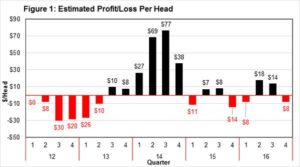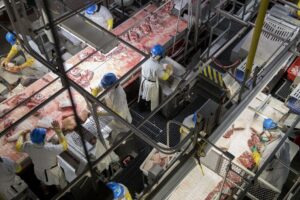In a sweeping move that could reshape the landscape of Philippine agriculture, the Department of Agriculture stands at the crossroads of transformation as it sets its sights on modernizing the decades-old Minimum Access Volume (MAV) scheme for pork imports. Like dusting off an old family heirloom to give it new life, this ambitious overhaul promises to address the intricate dance between local production and international trade, a delicate balance that has shaped the nation’s pork industry for generations. DA Eyes Comprehensive Overhaul of Pork Minimum Access Volume After Decades
The Department of Agriculture (DA) has announced plans to revamp the decades-old pork Minimum Access Volume (MAV) system, a move that could significantly impact the Philippines’ meat importation landscape. This initiative comes amid mounting pressure from local hog raisers and escalating concerns about food security.
Agriculture Secretary Francisco Tiu Laurel Jr. emphasized the urgent need to modernize the MAV mechanism, which has remained largely unchanged since its implementation in 1995. The existing framework, while functional has become increasingly inadequate in addressing contemporary challenges facing the pork industry. Rising production costs and disease outbreaks, especially the African Swine Fever (ASF) have exposed vulnerabilities in the current system.
The proposed overhaul encompasses several key modifications to the MAV governance. Central to these changes is the recalibration of import quotas, which currently stands at 54,210 metric tons under in-quota rates. A technical working group, comprised of industry stakeholders and government officials, have been tasked with developing new guidelines that better reflect market dynamics. The group meets weekly to expedite the process, hoping to implement changes by second quarter of 2024.
Data from the Bureau of Animal Industry reveals that pork imports surged by 23% in 2023, reaching approximately 647,000 metric tons. This influx, while helping stabilize domestic supply, having sparked debates about its impact on local producers. The DA acknowledges these concerns and plans to incorporate safeguards in the revised MAV system to protect domestic stakeholders.
The revamped MAV framework will introduce more stringent quality control measures and enhanced traceability requirements for imported pork products. Additionally, the DA is contemplating the implementation of a more obvious allocation system for MAV licenses, addressing long-standing concerns about equitability in quota distribution. This could potentially democratize access to import privileges, which has historically been concentrated among a few major players.
Local hog raisers, represented by the Samahang Industriya ng Agrikultura (SINAG), have expressed cautious optimism about the proposed changes. They advocate for stricter monitoring of import volumes and better mechanisms to prevent technical smuggling. However, some importers worry that excessive restrictions could lead to supply bottlenecks and price volatility.
The DA’s proposal also includes provisions for emergency importation protocols during supply shortfalls or disease outbreaks.These mechanisms would allow for rapid response to market disruptions while maintaining necessary safeguards. The department aims to strike a delicate balance between ensuring food security and protecting domestic producers’ interests.
An innovative aspect of the reform is the integration of digital monitoring systems to track both imported and domestic pork movements. This technological enhancement should facilitate more efficient market surveillance and policy implementation,although some smaller stakeholders express concern about adaptation costs.Economic analysts project that the MAV system overhaul could result in more stable pork prices, potentially reducing inflation pressures in the food sector. However, the impact on retail prices will largely depend on implementation effectiveness and market conditions.The DA estimates that proper execution could lead to a 15-20% improvement in market efficiency.The proposed changes face several implementation challenges, including infrastructure limitations and resistance from entities benefiting from the current system. Nevertheless, Secretary Laurel maintains that modernization is essential for long-term industry sustainability.
International trade partners are monitoring these developments closely, as changes to the MAV system could affect existing trade relationships. The Philippines must ensure that any modifications comply with World Trade Association commitments while serving domestic interests.
As the DA proceeds with this ambitious reform, stakeholder consultations continue to shape the final framework. The success of this overhaul will ultimately depend on finding the right balance between liberalization and protection, efficiency and equity, modernization and practicality.
As the Department of Agriculture embarks on this ambitious journey to modernize the Maximum Allowable Volume system for pork, only time will tell if these changes will strike the delicate balance between protecting local farmers and ensuring food security. The coming months will reveal whether this overhaul can truly transform a decades-old policy into one that serves the evolving needs of both producers and consumers in today’s dynamic market landscape.






Be First to Comment